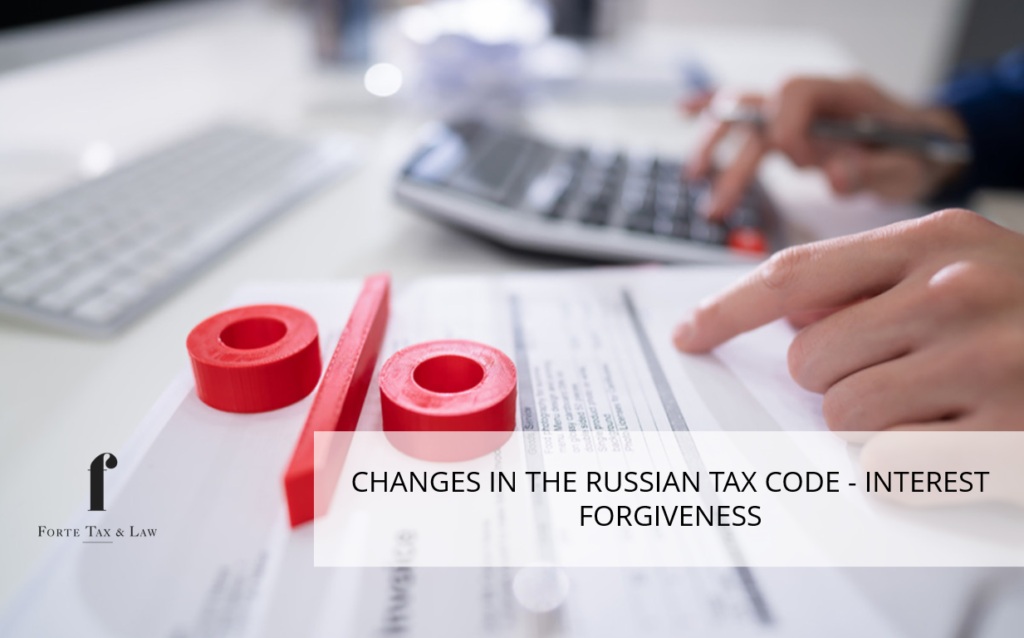Forte Tax & Law » News » Changes in the Russian Tax Code – Interest Forgiveness
Changes in the Russian Tax Code – Interest Forgiveness
The Russian Tax Code has been amended to exempt interest forgiven by a foreign lender from corporate income tax.
Federal Law No. 443-FZ dated November 21, 2022 has amended Article 251(1)(21.5) of the Russian Tax Code with respect to the forgiveness of loans and interest by a foreign entity. As set out in the Russian Tax Code (as amended), where a foreign lender forgives a Russian debtor the amounts of obligations under a loan agreement, including the interest recognized in non-sales expenses, those amounts will not be accounted for as income for income tax purposes. These provisions will apply to relationships arising effective January 1, 2022.

The previous version introduced by Federal Law No. 323-FZ dated July 14, 2022 abolished this tax exemption for interest and was supposed, as set out in the law, to apply to relationships effective January 1, 2022. For this reason, Russian tax authorities claimed that loan interest in 2022 forgiven by a foreign lender resulted in a taxable income for a Russian taxpayer. The Forte Tax & Law team disagreed with this position of Russian tax authorities. Indeed, Russian tax laws take effect not earlier than one month after the day of their official publication and not earlier than the 1st day of the next tax period for a relevant tax[1]. Moreover, any law that worsens the taxpayer’s position may not operate retroactively[2].
We believe that this provision worsened the taxpayer’s position and might not, therefore, operate retroactively. It was supposed to apply not earlier than the beginning of a new tax period for income tax – that is, January 1, 2023.
Now, this ambiguity has been resolved, and when a foreign entity forgives a loan and interest, such forgiven interest and loan principal will not constitute a taxable income for a Russian debtor. Please note that the law still contains ambiguity about tax accounting for positive exchange differences arising where a foreign currency loan is forgiven.
If you have any questions left or you would like to discuss something, please send an email to Anton Kabakov.
Sincerely,
[1] Article 5(1) of the Russian Tax Code
[2] Article 5(2) of the Russian Tax Code
